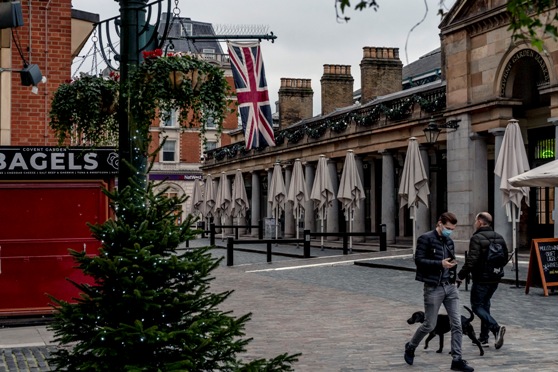Britain re-enters sweeping lockdown as virus variant rages
By Stephen Castle and Mark Landler
LONDON — Prime Minister Boris Johnson imposed a strict new national lockdown Monday (4) as Britain’s desperate race to vaccinate its population risked being overtaken by a fast-spreading variant of the coronavirus that was on track to overwhelm the nation’s beleaguered hospitals.
After several days of frighteningly high and escalating case numbers, Johnson ordered schools and colleges in England to close their doors and shift to remote learning. He appealed to Britons to stay at home for all but a few necessary purposes, including essential work and buying food and medicine.
The nationwide restrictions, officials warned, will remain in place until at least the middle of February.
The decision was a fresh setback for Johnson, coming at a time when the arrival of two vaccines appeared to provide a route out of the crisis after nine fraught months and fierce criticism of his handling of the pandemic.
On the day that the first doses of a vaccine developed by AstraZeneca and the University of Oxford were administered, the good news was drowned out by the reintroduction of the type of sweeping restrictions used last spring when the pandemic first threatened to run out of control.
In recent weeks, a new, highly transmissible variant of the virus has taken hold in London and southeast England, prompting an alarming spike in case numbers, to close to 60,000 a day, and putting hospitals under acute pressure.
On Sunday (3), Johnson acknowledged that the current controls on daily life were insufficient. But the first announcement of a full-scale lockdown came not from England but from Scotland, where the first minister, Nicola Sturgeon, has consistently moved further and faster to try to tame the pandemic.
Speaking in Edinburgh, Sturgeon said that people in mainland Scotland would be required to stay at home and to work from there where possible, while places of worship would be closed and schools would operate largely by remote learning.
Johnson followed Monday evening to announce the lockdown in England that many had predicted was inevitable.
“It’s clear that we need to do more together to bring this new variant under control while our vaccines are rolled out,” Johnson said in a televised address.
Though the weeks ahead may be some of the hardest yet, he said he believed Britain was “entering the last phase of the struggle, because with every jab that goes into our arms we are tilting the odds against COVID and in favour of the British people.”
People in England were being encouraged to obey the new rules immediately, though some of the new restrictions will not be given legal force until Wednesday (6) morning, and there is likely to be a vote in Parliament, which is being recalled specially on the same day.
Ministers had been celebrating the deployment of the AstraZeneca vaccine, which is not only cheaper than the one from Pfizer-BioNTech but also much easier to store. They said it could help turn the tide in Britain’s battle against the virus.
But Britain is involved in a high-stakes race to roll out its mass vaccination program before its overstretched health service is overwhelmed by the new variant. Already, non-COVID treatment is being postponed and images of ambulances stacking up in the parking lots of some hospitals last week illustrated the challenge faced by the country’s weary health workers.
The government has raised its COVID alert to its highest level for the first time, warning of a “material risk of health care services being overwhelmed”. On Monday, there were more than 26,000 COVID-19 patients in hospitals, an increase of 30% from the previous week, Johnson’s office said. And cases are rapidly rising across the country, it said.
Johnson has set an ambitious target for the country’s vaccine drive: administering a first dose of the vaccine to the most vulnerable segments of the population by the middle of February. If the government achieves that, he said, it could begin to lift restrictions.
Most Britons already face strict curbs on everyday life. Nonessential stores, pubs and restaurants are already closed in much of England, where those living in the areas under the toughest rules are barred from mixing between households.
Now, all parts of England will be under those curbs and schools will be closed for most pupils. Some restrictions, however, will be a little less onerous than those imposed last March, when the virus was marching unrelentingly through Europe and the country first locked down.
This time, people in England will still be allowed to meet one other person to exercise together outside, and places of worship will remain open, as will playgrounds. Elite professional soccer matches will continue, although some matches have had to be cancelled lately after players were infected.
For critics, Monday’s developments illustrated Johnson’s tendency to postpone decisions until the last moment, in part to balance public health issues with the concerns of many in his ruling Conservative Party about the devastating impact on the economy.
-New York Times


